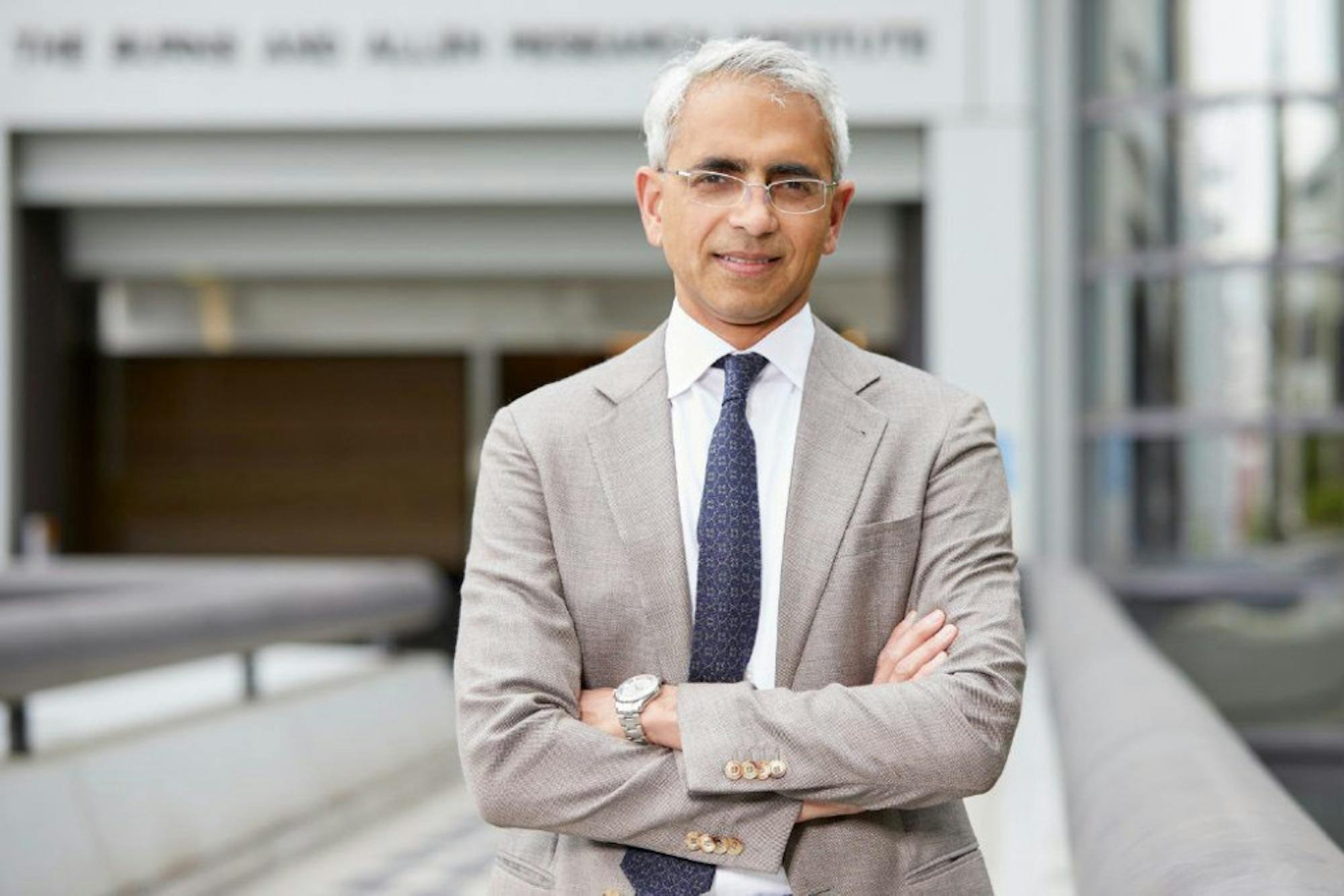Mass General Brigham Chief Academic Officer and Dean for Faculty Affairs Ravi Thadhani will serve as Emory University’s next executive vice president for health affairs (EVPHA). In addition to his role as EVPHA, Thadhani will also act as vice chair of the Emory Healthcare Board of Directors and executive director of Emory’s Woodruff Health Sciences Center, which includes parts of Emory’s hospital system and the Rollins School of Public Health, Nell Hodgson Woodruff School of Nursing and the Emory University School of Medicine.
The University selected Thadhani, who is also a professor of medicine at Harvard Medical School (Mass.), for the role after an “extensive international search.” He will assume the position on Jan. 1, 2023, according to an Oct. 27 email from University President Gregory Fenves to the Emory community.

Fenves said in an Oct. 27 press release that Thadhani is a “dynamic and innovative leader” with vast experience in health care, biomedical research and health training.
“He will inspire Emory’s talented doctors, nurses, frontline staff, faculty and researchers to reach new heights of excellence,” Fenves said. “In his many years of academic health system leadership, he has never stopped his research and clinical work, which is a testament to his lifelong commitment to serving patients and improving community health. I can’t wait for him to get started at Emory.”
Thadhani will also provide oversight to the Emory Healthcare leadership team and interim CEO Dane Peterson, who took the job on Sept. 1 after former Emory Healthcare CEO Johnathan Lewin announced his decision to step down on Nov. 12, 2021.
Thadani was born in India but lived in Nigeria, Hawaii and Guam before he received a scholarship to attend the University of Notre Dame (Ind.). Thadani noted that his parents — neither of whom finished high school — pushed him to attend college so he could have “options” in life.
“For context, I grew up on an island that is 30 miles long by eight miles wide,” Thadani said in a Q&A. “There were basically two options for those who wanted to leave and explore opportunities off the island — one was to go to college and the other was to join the military. More than half of my class went into the military, and a few of us went to college.”
According to the Q&A, Thadani grew up in hospitals — his mother was hospitalized almost every other month due to severe asthma, while his father ended up on dialysis due to severe kidney disease. This motivated him to become a physician.
“As far as my specialty, it was obviously influenced by my father’s illness,” Thadani said. “I wanted to conduct research and treat people with kidney disease so they could survive longer and have a better quality of life.”
Thadhani’s first official step into medicine came in 1991 when he received his M.D. from the University of Pennsylvania before continuing his education at the Harvard School of Public Health (Mass.), where he received a master’s degree in public health in 1997.
After completing his education, Thadhani focused his laboratory research on Vitamin D metabolism and developing diagnostics and therapeutics related to preeclampsia, a high blood pressure disorder that can occur during pregnancy.
“My passion has always been in pregnancy and adverse outcomes of pregnancy, largely because this is an area that has been ignored in research,” Thadhani said. “Women who have hypertension in pregnancy and complications thereof are more like[ly] to get kidney disease in future years and more likely to go onto dialysis as well.”
Thadhani also served as the editor of the Current Medical Literature-Lysosomal Storage Diseases, as well as an ad hoc reviewer for publications such as for the New England Journal of Medicine, the Lancet, the Journal of the American Society of Nephrology, Kidney International and the Journal of Clinical Endocrinology and Metabolism.
Recently, Thadhani has held several academic roles at Harvard Medical School since 1998, including professor of medicine from 2012 to 2017, until accepting his new position at Emory. He also served as a professor-in-residence at the University of California, Los Angeles from 2018 to 2019.
As chief academic officer of the Mass General Bringham non-profit hospital in Massachusetts, Thadhani oversaw a $2.3 billion research enterprise, graduate medical education and continuing professional development.
Thadhani also wonthe Harold Amos Faculty Diversity Award from Harvard Medical School. He added that Atlanta’s diversity drew him to Emory.
“That award highlighted my strong efforts and desire to improve equity and inclusion in the workplace,” Thadhani said. “That involved not just mentoring individuals from underrepresented backgrounds, but creating an environment where they are welcome, where they thrive and get promoted.”
Thadhani will be replacing interim EVPHA David Stephens, who will be returning to his role as WHSC vice president for research and the chair of the medical school’s Department of Medicine in January.
In the Oct. 27 email, Fenves stated that Emory is “poised to make tremendous contributions and elevate our outstanding work in the health sciences and health care” under the leadership of Thadhani.
“I know that there have been many challenges to overcome in recent months, particularly for Emory physicians, nurses and frontline medical staff,” Fenves wrote. “Dr. Thadhani understands this and is ready to listen and develop solutions from the moment he arrives. His job is to empower this community and to provide vision and guidance as we seize opportunities for the future.”
As he assumes his new position at Emory, Thadhani displayed his excitement for meeting people throughout campus.
“I’m going to do the same when I get to Emory,” Thadhani said. “I’m going to put on my walking shoes, put some granola bars in my backpack and I’m going to meet people — physicians, clinicians, care providers, researchers, faculty and staff — and discover the special sauce that makes Emory what it is.”





